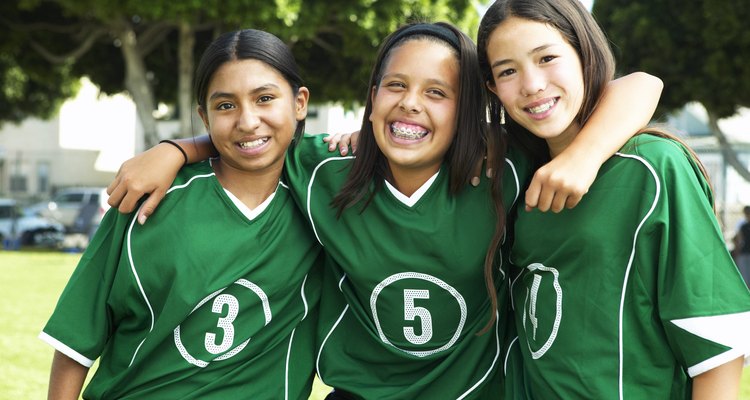
Barry Austin/Photodisc/Getty Images
Children and adults with pierced ears must take special precautions while playing sports. Especially in the first months after piercing, the ears are susceptible to damage and infection. Pediatrician William Sears, MD advises that parents should not pierce their children's ears until the child is able to competently care for her ears herself. Adults with pierced ears must also be careful to avoid serious injuries.
Piercing Pains
Having pierced ears poses serious risks when the person plays sports. A blow to the ears or face -- even a light one -- can drive the ear posts into the skin on the head and neck behind the ears, causing serious injuries. Tugging, pulling and running can pull studs out of the earlobes and rip the surrounding skin, according to pediatrician William Sears. This injury is extremely painful and can leave permanent scars.
Infection Issues
Newly-pierced ears are highly susceptible to infections because the body treats the piercing as an open wound, according to Sears. Sports expose the ears to more pathogens because of the close physical contact and increased likelihood of falling. Exposure to dirt, sweat and other substances during sports may cause newly pierced ears to become infected. Once the holes have fully healed, the ears are less likely to become infected, but you should avoid wearing earrings during sports.
When to Pierce Your Ears
Wait until sports season is over to have your ears pierced. After your ears are pierced, the studs need to stay in for four to six weeks. Because when you remove them to play sports, the holes may close up. If you've had your ears pierced recently and plan to play sports anyway, take precautions to keep your head and ears safe. Place foam covers on the pointy backs of earrings and use tape or gauze to hold earrings in place. The best strategy, of course, is to remove the earrings and try piercing again later.
How to Care for Your Piercings
The safest metals for ear piercings are generally gold and titanium, which are unlikely to provoke allergic reactions or infections. Four to six weeks after piercing, begin removing earrings and cleaning the posts with alcohol or saline solution daily. If have swollen or inflamed ears, consult your doctor and avoid wearing earrings until the inflammation goes away.
Related Articles
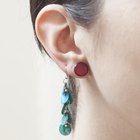
How to Change Pierced Earrings
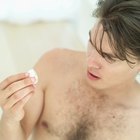
Taking Care of Gauged Ears

How to Disinfect Sunglasses

How to Remove a Captive Navel Ring
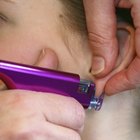
Ear Piercings & Swimming

How to Keep Eyeglass Nose Pieces From ...
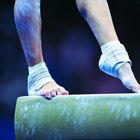
How Does Prewrap Tape Help Gymnasts?

How to Prevent Pock Holes From ...
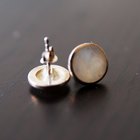
How to Sanitize Earrings

How to Restart a Swiss Army Watch
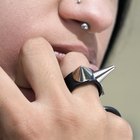
Information on Nose Piercings

How to Clean an Amethyst Ring
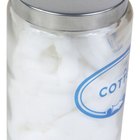
How to Care for a Rook Piercing
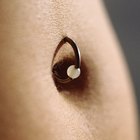
Rules for Navel Piercings

How Long Should I Wait to Get My Nose ...

Nipple-Piercing Risks
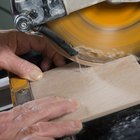
Health Risks of Marble Dust

What to Do When a Nose Ring Falls Out

Nose Ring Problems
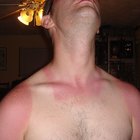
Why Do We Need Sunscreen?
References
- "The Portable Pediatrician"; William Sears, M.D., et al.
- "American Medical Association Family Medical Guide"; American Medical Association
- "Caring For Your Baby and Young Child"; American Academy of Pediatrics
Writer Bio
Brenna Davis is a professional writer who covers parenting, pets, health and legal topics. Her articles have appeared in a variety of newspapers and magazines as well as on websites. She is a court-appointed special advocate and is certified in crisis counseling and child and infant nutrition. She holds degrees in developmental psychology and philosophy from Georgia State University.
Photo Credits
Barry Austin/Photodisc/Getty Images